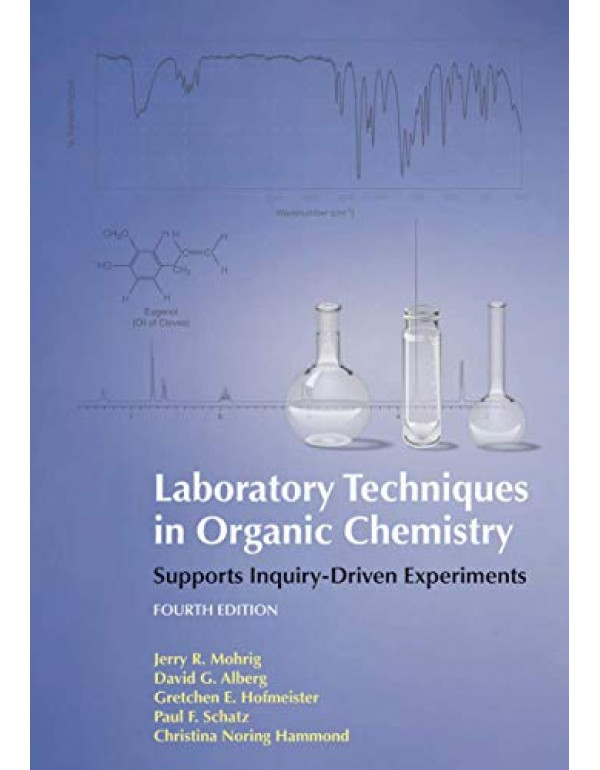- Type: Paperback Book.
- Publisher:
- Language : English
- Item Weight: 0.703
- Dimensions: 17.8 x 25.7 x 1.8
- Pages: 528
- Edition: 4th ed. 2014
Whether you're a budding chemist embarking on your journey or a seasoned practitioner seeking to refine your skills, "Laboratory Techniques in Organic Chemistry" serves as a comprehensive guide. Authored by Gretchen Hofmeister, this invaluable resource delves into the essential experimental techniques and theoretical principles that govern organic chemistry laboratories.
Practical Guidance and Deep Understanding:
The book provides detailed instructions for a wide range of laboratory techniques, including distillation, recrystallization, chromatography, and spectroscopy. However, it goes beyond simply providing procedures. It also explains the underlying chemical principles behind each technique, ensuring a deeper understanding and informed practice.
Diverse Experiments and Engaging Approach:
"Laboratory Techniques in Organic Chemistry" offers a broad selection of experiments across various areas of organic chemistry, catering to different interests and learning styles. The clear and accessible writing style, aided by illustrative examples, makes complex concepts understandable and encourages active learning.
Benefits for Everyone:
- Organic Chemistry Students: Gain crucial laboratory skills and deepen your understanding of organic chemistry concepts.
- Laboratory Instructors: Utilize the book as a valuable resource for designing and instructing organic laboratory courses.
- Self-Directed Learners: Explore organic chemistry experiments and techniques independently.
- Professionals: Refresh your knowledge and stay updated on evolving laboratory practices.
Empowering Exploration:
Overall, "Laboratory Techniques in Organic Chemistry" serves as an invaluable companion for anyone venturing into the exciting world of organic chemistry laboratories. Its comprehensive coverage, practical approach, and theoretical grounding empower you to perform experiments effectively, understand the underlying principles, and confidently navigate the laboratory environment.
